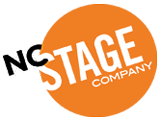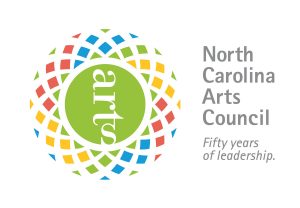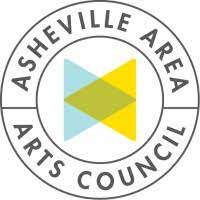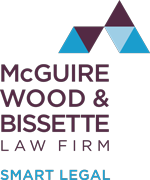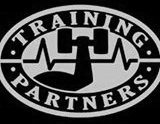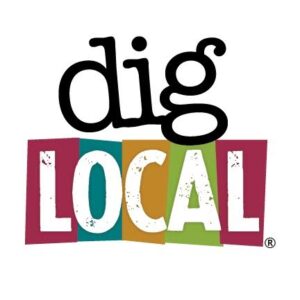Thanks for joining us for A Defining Moment, a 3-part podcast series where we ask our artists about their experiences in 2020 and the state of theatre beyond.
This week we sat down with Emma Lenderman, who played the part of Emmy in A Doll’s House Part 2 (2019).
Prefer to read? See the transcript below.
Taylor Beyrer: Hi there, my name is Taylor Beyrer and I’m the Audience Relations Manager for North Carolina Stage Company. I’m here today with Emma who was in our production of A Doll’s House last year. And so Emma, go ahead and introduce yourself. Who are you? And what do you do?
Emma Lenderman: Hello, I’m Emma. I’m an Asheville native. I grew up seeing shows at NC Stage and took my first acting class there and then moved away from North Carolina to go to school at Texas State University. Graduated 2019 with a BFA in musical theatre, came back to Asheville to do Doll’s House Part 2 at NC Stage, which was running at this time last year, I played Emmy in that production, then moved to New York to do the acting thing. And we all know what happened after that. But I am still in New York and making the most of this time. And yeah, that’s about it. That’s who I am.
TB: Awesome. So you recently graduated from school, and you’re starting out in New York. And this became the epicenter of the virus. You were living there when this happened?
EL: I was. So I had been – after I came back to New York, after doing Doll’s House Part 2 at NC Stage. I was subletting for a while. And then I signed a lease February 1, and – which was excellent timing. So I ended up leaving New York on March 15, and went back to Asheville and basically just camped out in my childhood bedroom for about five months. And then I moved back to – I was still paying for my apartment while I was in North Carolina so it was here in Brooklyn waiting for me when I got back in September. So I’ve, yeah, I’ve been back in New York since the beginning of September.
TB: And then what projects were you working on in March, if any?
EL: Yes, actually, the day that I left New York City was the day that I was supposed to go to Philadelphia to do a production of The Wolves at Philadelphia Theatre Company, which, of course, was – the plan for that changed. At that time, they just postponed it without any definite plan. But the plan that they did come up with is an action now if people can see me behind me, there’s a green screen – I’m in my bedroom, which is now turned into a sort of like a home studio. We’re doing the production virtually now. So we’ve been having Zoom rehearsals and costume fittings and such for that. We’ll be filming it over the next week. And by the end of November, there will be a link that people can purchase as you would a ticket to watch this interpretation of this production that’s all happening digitally. So yeah, it’s obviously been a huge curveball, but people are still out there trying to make theatre happen. So it’s really been interesting and a huge gift to be a part of that sort of graceful execution of Plan B.
TB: Yeah, most definitely. So the next question is, what have you worked on since? So you covered that a little bit. Is there any other projects you were working on?
EL: No theatre. I’ve been sort of just doing whatever I can do on my own to still feel like an artist. And so for me, that’s been doing a lot of writing, working on developing my own content, which has been a really nice way to occupy my brain while it feels like this thing that I have spent the last four years of school but also my whole life, just like waiting to get out in the world and do – so any small thing that I can do on my own to feel like I’m making steps towards the thing that I want to be doing when the thing that I want to be doing is pretty much gone at the moment.
TB: Yes, definitely. So, next up, do you think that the definition of theatre has shifted since the pandemic began?
EL: Hmm. I guess that would depend on what your definition of theatre was.
TB: Sure. Sure.
EL: Do you have a definition that you like or gravitate towards?
TB: I tend to think of theatre as a – or so, part of the mission and vision of NC Stage is creating productions that illuminate the human experience. And I think that’s, that’s how I think of theatre is this illumination of the human experience. But everyone has a different definition. And I’d love to hear yours.
EL: I love that. I think I would – to use a theatre term – I think I would “yes and” that. I think, absolutely illuminating the human experience. And I think that the part that I would add to that would be illuminating the human experience in a shared community space. And I don’t think the definition of theatre has changed. But I think if we’re going off that definition, the human experience – the definition of the human experience and the definition of community space has definitely changed. And I think that because of that theatre has shifted, but still living under the same guidelines of that definition that we just discussed, I think how – gosh, we could sit here and talk for hours and days and weeks about what the human experience has been over the last 6, 7, 8 however many months we’ve been doing this now. And the way that we can occupy community spaces, we could talk about that forever, too – but I think that the theatre that I’m working for now, as well as other theatres, and the Broadway community that I follow and watch the way that artists have sort of gracefully stepped into what these new boundaries are has been a really interesting. It’s, of course, tragic to watch but it’s really beautiful and very inspiring of hope. So no, I don’t think theatre’s changed. But I do think that the way that theatre is going to happen and reach people has changed.
TB: Yeah, definitely. And how do you typically define what you do – so as an actor – and then has that definition changed or stayed the same? In other words, how are you adapting?
EL: Hmm, so that was a multipart question. How do I define what I do as an actor?
TB: Yes.
EL: And how am I adapting?
TB: Yes
EL: Okay. I’ve realized, since I’ve left school, that being an actor means a lot of different things. The thing that drew me to being an actor that I think is at the core of being an actor is the artistry side of it, which is being a storyteller or being an interpreter of text, like, you could go on and on about all the “woowoo” definitions, but it’s that thing that – just magic thing that clicks inside you that, to me, is the core of being an actor, which is – I don’t know, I could talk about it forever. It’s like being an anthropologist of the human experience and sharing that with other people. That – How have I adjusted that? Well, I think that this time has allowed me to sharpen that in a weird way. Because I think that it has brought to the forefront what we believe to be important in our relationships, and just lives in general, I think. Before all this, I was living by a set of rules that for some reason, in my mind existed, like, “these are the obligations I have to fulfill” and “all this stuff matters.” And you know, when everything is shut down, you’re really only left with the people around you and while weirdly being shoved up to this global lens of just this atrocity that’s happening all over the world. And I think that as an actor, as an artist, is probably the most aggressive and in your face, exercise in empathy and the human experiences we were talking about that you could possibly get. So I think that in terms of being an actor – in that realm – is just figuring out how to have the patience and curiosity to sit in the moment instead of shutting yourself off from all of what’s happening, fully experiencing it, and letting it in. So that’s that one side of – the fun, artistic side of being an actor. I mean, obviously, it’s not fun to sit and witness a pandemic. But you know, the beautiful thing about being an actor, which is the human connection, and whatever. The other side of being an actor, which I really met fully after graduating is the “being your own business” side of things. Which is very, very separate from the magical, sparkly thing inside you that makes you want to get up on stage. It’s like figuring how to make connections, figuring out how to balance your day job, the thing that’s going to pay your bills, with making sure that you still have time to audition or take classes or invest in your toolbox outside of the realm of that fuzzy, wonderful, warm, “the talent I was born with” whatever, no – but like, sharpening what you have kind of thing. There’s all of that sort of upkeep and connection to the industry itself that is a full time job. And that has been a large adjustment as well, because how do you do that when everything has stopped? And for me, I think part of that has been a mindset shift of like okay, well, maybe now is the time to figure out how to invest more in that day job. So when things do come back, I’ll be financially secure in a way that I can maybe take that extra class or cut back on hours to go to those auditions. I mean, that is impossibly hard, because the cost of living in New York City is expensive, but like, I do have so much more time now, because I’m not – I’m not auditioning every morning, I don’t have classes to go to. What am I going to do with that time to help myself as an actor, the leader of my own business, when things are back? Other than that, I think it’s figuring out how to stay engaged and connected when everything feels so disconnected, which for me, means making sure I’m still reading plays, making sure I am following the work of actors who either are fortunate enough to be working at this time or have a body of work that I can go look back on – just staying inspired and motivated. And figuring out what sort of research and learning I can do on my own so I haven’t atrophied by the time the opportunity is there again. That was a long answer. But that’s that’s how I define what I do. And that’s how I’m adjusting!
TB: That’s a great answer, it’s a great answer. It’s interesting this is – that’s one of my favorite questions is how are you adapting because everyone adapts differently and everyone has their own way of thinking about this time and what to do with this time and because it’s a brand new experience for everyone right now.
EL: Absolutely. And I would definitely be not telling the truth if I sat here and told you that I have adapted perfectly and honestly even well at this time. So much of it too, which is just inevitable, is grieving the year that I wish I had. I will say that for the most part I’ve been so lucky to be safe and well and generally happy during this time. But I so – this play that I’m doing over Zoom – it’s wonderful to have the chance to do it. But I so badly wanted to go to Philly and be in the same space as these other women doing this play that I love so much. And I so badly wanted to have the opportunity, or just the feeling, that my first year out of school meant something other than sitting at my parents house for half a year. Like that is, in a way is – not to be dramatic, but it’s like the death of a dream you had for yourself like there’s this- there’s sort of this – I don’t know, maybe I’m being young and naive – I’m just gonna go ahead and say that I’m being young and naive – but it’s just, it’s time. It’s time that I, and everyone around me, we can’t get this back. Like, as an actor you are your instrument. So I’m going to change and grow and I’m going to outgrow roles that I never had the chance to audition for. I’m going to – I could sit here and go on and on about all the wonderful things that could have happened this past year – and wonderful things did happen in spite of and because of the pandemic. But there is still – going back to the answer of how I’ve adjusted: Yes, I have made those adjustments, but also it’s so so sad. And apart from participating in the thing that I love – I love being an audience member that is is not something that I can overlook as an actor, I weirdly, weirdly, weirdly had the experience of attending a Broadway show on the last night that shows were open.
TB: Wow.
EL: Yeah. I went out to dinner with my friends. We were walking through Times Square to go to the theatre and we looked at our phones and there was the headline that the World Health Organization had just declared Coronavirus “a global pandemic,” we were like, Oh, that’s not good. And I went in the theatre, I went saw Company, the Broadway revival of Company, and I – just that memory of sitting in the theatre with all these people around me, no masks on. Which in hindsight is horrifying because Coronavirus was here, I don’t know how I escaped unscathed – but with the naiveté that we had in that moment. That feeling is so – it’s so far away, obviously, because this was over half a year ago. But I know what that feeling is and that feeling is only something that you can get in the theatre. It’s not something you can get experiencing theatre alone in your house on a screen, as wonderful as that redirect is. Yeah, there’s grief, of course, because there is nothing like theatre and by the nature of what it is just can’t happen now. So some things we can’t adjust and they’re missing from our lives. And I think it is worth noting that they’re just gone right now. And that sucks.
TB: Mm hmm. It’s, I mean, truly.
EL: I’m preaching to the choir, I’m sure you feel the exact same way.
TB: So one last question, what is one thing that you are afraid of when moving past the pandemic in the world of theatre? And what is one thing you are hopeful about when we move past the pandemic in the world of theatre?
EL: One thing I’m afraid of. I’m afraid of the passage of time, and how long it’s going to take for things to be safe and for audiences to feel confident enough to gather again. Because even if things are safe, the entire world has just been through a very traumatic event which is directly related to the act of gathering in groups which, as we just said, is necessary for theatre. And again, with however long it takes is just more loss of time – loss of time together, loss of time to tell the stories that we care about, and loss of time to create more new, different, inspiring, moving works. So that is scary to me. But what I am hopeful for is that – I do believe that when things – I don’t want to say when things are back to normal because I don’t think that’s going to happen but – when things are put back together I think that, just by the nature of the artists that I know and the artists that I admire, I am hopeful that there is going to be a surge of really brave work. I think that this experience has been a shock to a lot of systems, of course. But I think that that sort of shock is going to sort of align things in a way where people’s priorities have changed. And we are, in the theatre community, are more acutely aware of the the necessity and immediacy of what theatre is and what theatre does, which is only something that I think you could ever feel after having it taken away from you. And I am really hopeful that that reset is going to create some really amazing things.
TB: Wonderful, and then – I lied, we have one last question. And it’s an easy one. And it’s how are you doing?
EL: That’s an easy question? Oh. (laughter)
TB: Well, that says a lot.
EL: No, I am – this is how I’m doing: I am healthy. I am well fed. I have a bed. I have a roof. I have wonderful roommates with amazing senses of humor and resilience that have kept me going. I am lucky enough to be experiencing the energy of New York City now, which I think a lot of people have discounted. And I, in following – I don’t want to say too much – but in following what’s been happening with the election this week, and what that could potentially mean for the future at large, I am feeling hopeful. That is how I am right now. How are you?
TB: Doing all right. We’re hanging in there. At NC Stage we’re trying to get – we’re trying to do what we can, through these interviews and through just trying to keep our audiences engaged and trying to keep people connected to things that illuminate the human experience. So we’re doing our best over here and things are looking okay.
EL: Good, good. Yeah, NC Stage. It means the world to me, I would not be sitting in this apartment in Brooklyn with a concrete purpose and goal in my life at large if NC Stage did not exist. Which is a massive thing to say, but is a true thing to say because it was my only window to theatre growing up in Asheville. So yeah, I hope that you – I’m sure it is so hard – but I hope that you feel and know that the work that you’re doing now is very important and very meaningful. And it sucks, I’m so sorry that you’re in this position, but if it means anything coming from little ol’ me – I love you guys, and I want nothing but the best. And I hope that you’re around for a long, long time and that millions of years from now there’s there’s another little girl who goes and sees Angels in America and says, Oh my gosh, Mommy, I want to do that.
TB: That’s wonderful. That’s really, really great. And we thank you for connecting with us and for being a part of our community,
EL: Of course.
TB: All right, well, that concludes things. I’m going to go ahead and stop recording. But thank you so much for joining me. And hopefully we’ll be able to connect with you soon.
EL: I hope so too.
TB: All right. Thank you.




